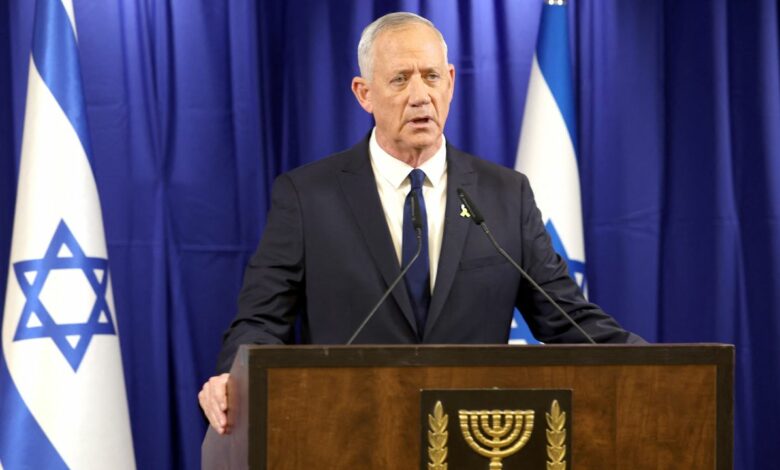
You can’t say he didn’t warn us. On May 18, he announced that if Netanyahu didn’t come up with a coherent plan to bring the hostages home and the governance of a post-war Gaza (among other things), then he’d leave the war cabinet by June 8. In light of Saturday’s rescue of four Israeli hostages, he delayed making good on his threat. By a day.
“Leaving the government is a complex and painful decision,” Gantz said in a televised statement on Sunday evening in Israel.
“Netanyahu prevents us from moving forward to a real victory [in Gaza]. That is why we are leaving the emergency government today with a heavy heart, but with a whole heart.”
So what now? The three most pressing areas of interest where Gantz’s resignation may be felt – at least for Israelis, the Palestinians in Gaza, and the outside world – are the Israeli government, the running of the war with Hamas, and Gantz’s own political prospects.
Perhaps the most important impact of Gantz’s departure is the one it won’t have: it won’t cause the government to collapse.
“Benny Gantz is in a fix,” former Middle East negotiator Aaron David Miller told CNN on Sunday before Gantz’s resignation.
“He would like to remain in the government, he brings a sort of moderating hand, but he does not have the potential right now to down the government.”
That’s because Netanyahu and his coalition partners still have 64 of the Knesset’s 120 seats.
So unless US President Joe Biden’s – sorry, Israel’s – hostage deal gets done, and Netanyahu’s far-right ministers make good on their threats to leave the government at what they say they’d see as Israel’s surrender to Hamas, then Netanyahu could safely stay in office till elections are due in October 2026 (opinion polls suggest that if they were held now, Gantz would win).
For the Palestinians in Gaza, a Gantz-free government means that at best, things won’t get any worse.
The “moderating” hand of Gantz to which Miller refers seems unlikely to have resulted in Israel going any “easier” on Hamas, or causing fewer civilian casualties than have occurred.

Gantz is no dove.
Nor for that matter is the third member of the war cabinet, Defence Minister Yoav Gallant. But both Gantz and Gallant have no qualms about disagreeing publicly with Netanyahu (Gantz once agreed to rotate the prime ministership with Netanyahu, only for the latter to prevent the budget passing so the government would collapse and Gantz wouldn’t get his turn as PM; Gallant was sacked and then unsacked last year, after calling on Netanyahu to pause his contentious judicial overhaul).
And so if a hostage deal that were acceptable to them – but which might cause Netanyahu’s coalition partners to bolt instead – appeared on the table, only for Bibi to block it for personal reasons, they might have been able to call him out.
With Gantz gone, that seems less likely – as does the likelihood of a hostage deal being consummated any time soon.




